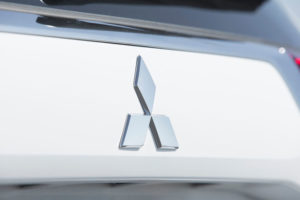
Nissan has confirmed that it will take a 34 percent equity stake in Mistubishi Motors (valued at 237 billion yen or $2.2 billion) after the two automakers signed an agreement to form a new strategic alliance. Both companies have been collaborating to some extent for the past 5 years, and are thereby lengthening their existing partnership under this new agreement. The alliance will directly affect purchasing, common platforms, joint manufacturing, and technology development.
Carlos Ghosn, Nissan’s chief executive and president, said in a statement, “This is a breakthrough transaction and a win-win for both Nissan and Mistubishi Motors. It creates a dynamic new force in the automotive industry that will cooperate intensively, and generate sizable synergies…We will support MMC as they address their challenges and welcome them as the newest member of our enlarged Alliance family.”
Mitsubishi Motors chief executive and chairman of the board Osamu Masuko said, “This agreement will create long-term value needed for our two companies to progress towards the future. We will achieve long term value through deepening our strategic partnership including sharing resources such as development, as well as joint procurement.”
As part of the deal, Nissan will purchase 506.6 million new shares of Mistubishi Motors priced at 468.52 yen or $4.31, making the automaker the biggest shareholder of Mitsubishi. Mitsubishi Heavy Industries, Mitsubishi Corporation, and The Bank of Tokyo—Mitsubishi UFJ are expected to maintain a significant collective ownership stake of Mitsubishi Motors and support its alliance with Nissan. The deal with Nissan is still subject to a definitive Alliance Agreement, which is expected at the end of May 2016. If all goes as planned, the deal will close by the end of this year.
Nissan acquiring a controlling stake in Mitsubishi is the latest expansion in the automaker’s alliance model, which was built around a 17-year cross shareholding agreement with Renault. Nissan also has an alliance with Daimler and the Russian automaker AvtoVaz.
A report from Automotive News suggests that Ghosn will “preserve and nourish” the Mitsubishi brand. The executive also said that the agreement came together quickly because Mitsubishi was open about how serious its fuel economy manipulation crisis was. Masuko, on the other hand, said that a partnership with Nissan was key to reestablishing trust in Mitsubishi and that they “had to do something quite daring.”
AN’s report goes on to highlight that there are many benefits to the Nissan-Mitsubishi alliance including providing a stable cash source and corporate management for Mitsubishi to help it restore its reputation and possibly add new vehicles to help its recovery in the U.S. For Nissan, it would enable it to tap into Mitsubishi’s strong network in Southeast Asia where its presence isn’t as big, allowing it to achieve higher reach and sales volume. Additionally, both automakers need to preserve their partnership in the manufacturing of mini-cars, given it accounts for 40 percent of Japanese domestic sales. Nissan created a mini-car joint venture with Mitsubishi in 2010.
Masuko said that both Nissan and Mitsubishi had been gravitating towards forming an alliance in recent years through joint projects, but this plan was accelerated with the latter’s fuel economy scandal. Ghosn said Nissan will use a similar approach to its alliance with Renault, which includes taking small steps, planning well, and ensuring that both companies have independent identities. Over the years, Nissan has also provided Mitsubishi with premium cars based on models from its Infiniti luxury division while Mitsubishi has provided Nissan with a pickup truck. “We are not going to change Mitsubishi. Mitsubishi is going to change by itself,” said Ghosn. “We are going to support Mitsubishi to do that.”
Due to Mitsubishi’s falling stock prices, it’s possible that Nissan may have been able to take a sizeable shareholding at a huge discount. This was mainly due to Mitsubishi’s fuel economy scandal, which caused its stock to drop by 43 percent since April 19. Mitsubishi has confirmed that none of the vehicles sold in the U.S. are affected by the fuel economy scandal and that it won’t seek help from other Mitsubishi group companies where the largest shareholder in Mitsubishi Motors is Mitsubishi Heavy Industries. Nissan’s 34 percent stake, however, is enough to grant it the ability to give a shareholder veto over board decisions.
SOURCE: Motortrend
